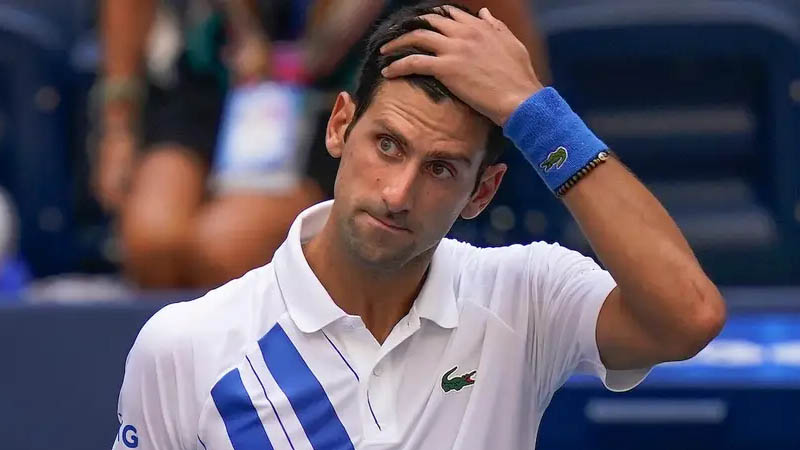Novak Djokovic caused some controversy at Roland Garros by issuing a political speech that appeared to dispute Kosovo’s independence. Djokovic scrawled on the camera lens after his straight sets win against Aleksandar Kovacevic: “Kosovo is the heart of Serbia.” Stop the violence.”
Kosovo, a former Serbian region mostly populated by ethnic Albanians, has been a Nato member since 1999 and proclaimed independence in 2008.
Serbia, on the other hand, has refused to recognize its statehood, and tensions between the two regions have flared in recent days, with many people injured in fights between Kosovo’s police, Nato-led forces, and local Serbs.
On Monday, scores of Nato forces were injured when hooded and shaven-headed Serbian men attacked them with batons at a municipal office in the volatile northwestern region of Kosovo.
Djokovic told the Serbian Newspaper Blic after his match that he felt “responsible” to speak out.
“I am not a politician and I have no intention of getting into political debates,” Djokovic said. “As a Serb, it hurts me a lot what is happening in Kosovo, our people who are expelled from the municipalities. The least I could do is this, I feel responsible as a public figure and the son of a man who was born in Kosovo, I feel the need to show support to all of Serbia.
Djokovic’s remarks sparked a strong outcry on social media from Kosovans. Srdjan Djokovic, Djokovic’s father, was reared in a modest mining village in Kosovo and has previously stated similar beliefs to his son.
Djokovic, a 22-time major winner, told the Italian daily Corriere della Sera earlier this month that he intended to return to Kosovo to baptize his children.
Over 100 nations, including the United Kingdom, as well as sporting bodies such as the International Tennis Federation and Fifa, have recognized Kosovo’s independence.
Fifa fined the Serbian FA €20,230 at the World Cup in December for showing a banner depicting Kosovo as part of Serbia in its team locker room.
There is no particular regulation in either the ATP or ITF Grand Slam rulebooks that bans players from making political remarks. Djokovic, on the other hand, informed the Serbian press that he “would do it again” regardless of the consequences.
“I don’t know what will happen, I know that there were objections from international journalists, whether they will punish me. I have no reservations, I would do it again. I am against wars and any conflict, I have always expressed this in public.
“This situation with Kosovo is a precedent according to the UN charter and all rights, I am very sorry that we are in the situation we are in. Kosovo is our heart, our stronghold, the biggest battle took place there, and the most important monasteries are located there… There are many reasons, and especially because it is the truth.”
Djokovic is no stranger to controversy. Following his first big victory in 2008, he filmed a video message for a “Kosovo is Serbia” rally in Belgrade. He finally came out in support of his father in January, at the Australian Open, when he was heavily chastised for posing for photographs with supporters carrying a Russian flag imprinted with Vladimir Putin’s portrait.



